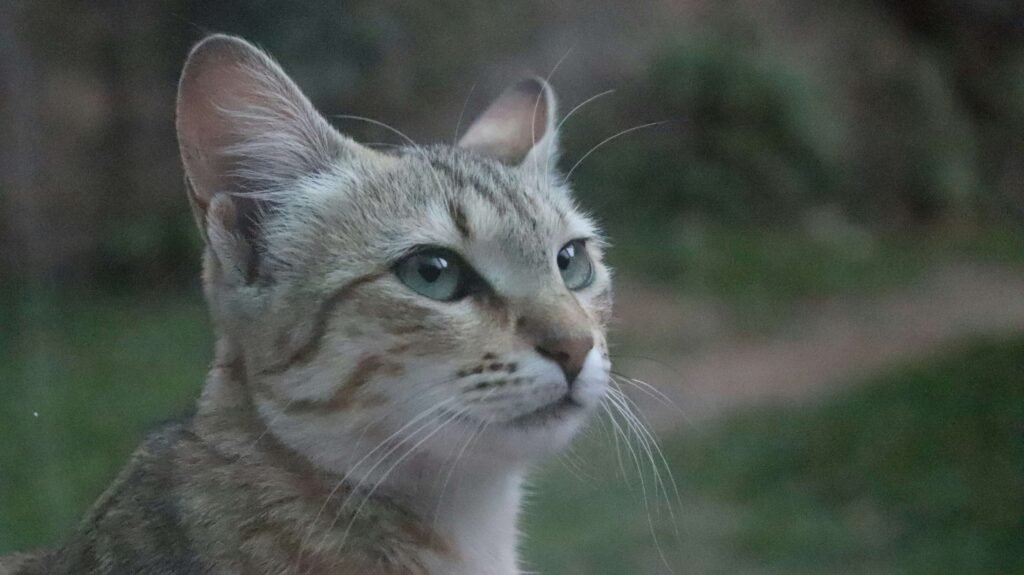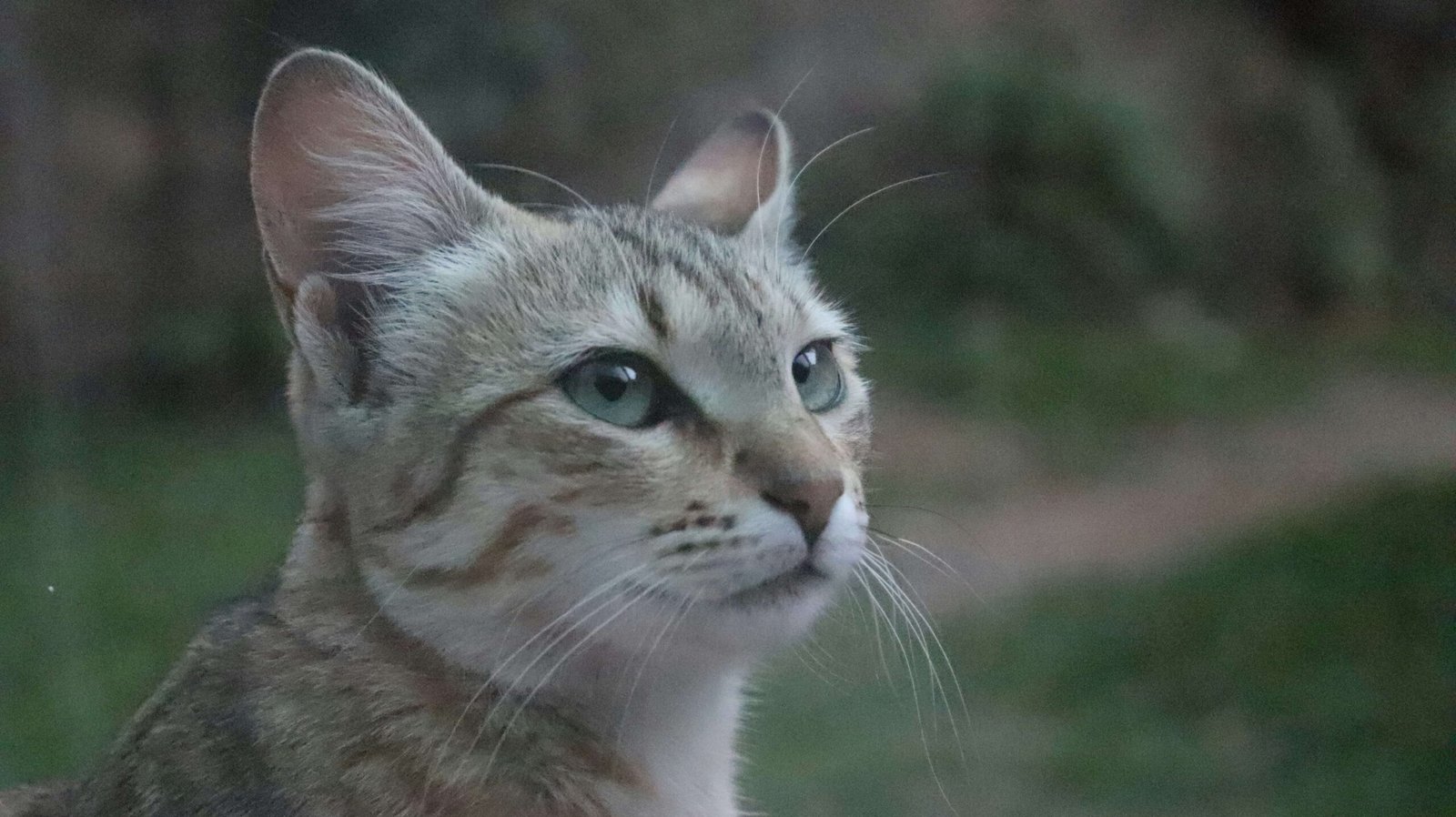Why Is My Male Cat Peeing Blood but Acting Normal?
If you’ve noticed that your male cat has blood in his urine but seems otherwise happy and healthy, it’s understandable to feel concerned. While your feline friend may not be showing obvious signs of distress, this symptom could indicate an underlying issue that requires attention. Blood in a cat’s urine—medically known as hematuria—can stem from a variety of causes, ranging from minor to severe. In this blog post, we’ll explore what might be happening, why it’s important to act promptly, and how you can support your furry companion through this situation. Let’s dive in and uncover the facts behind this unsettling symptom.
What Could Be Causing Blood in Your Cat’s Urine?
Blood in your cat’s urine can arise from several potential causes, each requiring different approaches for diagnosis and treatment. Here’s a breakdown of the most common culprits:
Urinary Tract Infections (UTIs):
UTIs are bacterial infections that can irritate the bladder and urethra, leading to bloody urine.Bladder Stones:
These mineral deposits can cause irritation or blockages, resulting in bleeding.Feline Lower Urinary Tract Disease (FLUTD):
A broad term for conditions affecting the bladder and urethra, often linked to stress or diet.Trauma or Injury:
Accidents or rough play can damage internal tissues, causing blood to appear in the urine.Kidney Issues:
Problems like infections or kidney stones may lead to blood mixing with urine.
While these causes vary in severity, none should be ignored. Identifying the root problem is crucial for ensuring your cat’s health and well-being. If you notice blood in your cat’s urine, even if he seems fine otherwise, it’s best to consult a veterinarian promptly.
Signs to Watch For Beyond Bloody Urine
Although your male cat may seem normal, there are subtle signs that could accompany hematuria and signal an underlying issue. Keep an eye out for the following symptoms:
Frequent Urination Attempts:
Cats with urinary issues often visit the litter box more frequently than usual.Straining to Urinate:
Difficulty or discomfort while urinating can indicate blockages or inflammation.Licking Genitals Excessively:
This behavior may suggest irritation or pain in the urinary tract.Changes in Urine Odor or Color:
Strong-smelling or unusually dark urine can point to infection or other problems.Behavioral Changes:
Even subtle shifts, such as hiding more often, could signal discomfort.
Noticing any combination of these signs alongside bloody urine should prompt immediate action. Early detection and intervention can make all the difference in your cat’s recovery journey.
Check this guide 👉Why Does My Cat Sleep at My Feet? Best 7 Behavior Tips!
Check this guide 👉Why Is My Cat Pooping Outside the Litter Box? Best 7 Tips!
Check this guide 👉Why Does My Cat Twitch in Their Sleep? Best 7 Behavior Tips!

Potential Causes of Hematuria | Possible Symptoms to Look For |
|---|---|
Urinary Tract Infection (UTI) | Frequent trips to the litter box |
Bladder Stones | Straining during urination |
Feline Lower Urinary Tract Disease (FLUTD) | Excessive genital licking |
Trauma or Injury | Changes in urine odor or color |
Kidney Issues | Behavioral changes like hiding |
Steps You Can Take at Home
If you suspect your male cat is peeing blood but acting normal, there are steps you can take at home to monitor and support him before seeking veterinary care:
Observe Litter Box Habits:
Track how often your cat uses the litter box and note any unusual behaviors.Provide Fresh Water:
Encourage hydration by offering clean, fresh water throughout the day.Switch to Wet Food:
Wet food contains more moisture, which can help prevent dehydration and support urinary health.Reduce Stress Levels:
Minimize environmental stressors, such as loud noises or sudden changes in routine.Keep the Litter Box Clean:
A clean litter box encourages regular use and helps you spot abnormalities quickly.
These simple measures won’t replace professional care but can provide temporary relief and valuable insights for your vet. Remember, early intervention is key to resolving urinary issues effectively.
When to Seek Veterinary Care Immediately
While some cases of hematuria may resolve on their own, others require urgent attention. Here are scenarios where you should contact your vet without delay:
Complete Blockage of Urine Flow:
A blocked urethra is life-threatening and requires immediate medical intervention.Excessive Lethargy or Weakness:
These signs could indicate severe illness or dehydration.Persistent Bleeding Over Several Days:
Ongoing blood in the urine suggests a serious underlying condition.Vomiting or Loss of Appetite:
These symptoms may accompany urinary issues and warrant investigation.Painful Vocalizations During Urination:
Crying or meowing while using the litter box signals significant discomfort.
Ignoring these warning signs can lead to complications, so don’t hesitate to reach out to your vet if you notice any of them. Your cat’s health depends on timely care.
Common Misconceptions About Bloody Urine in Cats
Many pet owners may misunderstand the causes or severity of hematuria in cats. To clarify, here are some common misconceptions and the truth behind them:
Misconception: Blood in urine always means infection.
While infections can cause hematuria, other conditions like bladder stones or FLUTD are equally likely culprits.Misconception: Cats will show obvious signs of pain if something is wrong.
Cats are masters at hiding discomfort, so even seemingly “normal” behavior doesn’t rule out serious issues.Misconception: It’s safe to wait and see if the problem resolves itself.
Delaying treatment can worsen underlying conditions, especially in cases of urinary blockages.Misconception: Diet has no impact on urinary health.
Poor hydration or low-quality food can contribute to urinary tract problems over time.Misconception: Only older cats experience urinary issues.
Younger cats are also prone to conditions like FLUTD, which can cause bloody urine.
Understanding these misconceptions helps ensure you don’t overlook potential warning signs. Always err on the side of caution when it comes to your cat’s urinary health.
Preventive Measures to Keep Your Cat’s Urinary Tract Healthy
Prevention is key to avoiding urinary issues in cats. By taking proactive steps, you can minimize the risk of hematuria and promote long-term wellness:
Provide Ample Hydration:
Ensure your cat has constant access to fresh water to reduce the risk of dehydration.Choose High-Quality Food:
Opt for diets specifically formulated to support urinary health, often recommended by veterinarians.Encourage Exercise:
Regular playtime keeps your cat active and helps maintain a healthy weight, reducing strain on the urinary system.Maintain a Stress-Free Environment:
Minimize changes in routine or loud disturbances that could stress your cat and trigger urinary issues.Schedule Regular Vet Check-Ups:
Routine exams allow early detection of potential problems before they escalate into emergencies.
By incorporating these preventive measures into your cat’s daily life, you can significantly lower the chances of encountering urinary complications down the road.
How to Support Your Cat During Recovery
If your male cat has been diagnosed with a urinary issue, supporting him during recovery is crucial for his comfort and healing process. Here are practical ways to assist your feline friend:
Administer Medications as Prescribed:
Follow your vet’s instructions carefully to ensure proper treatment and avoid complications.Monitor Litter Box Use Daily:
Keep track of your cat’s urination habits to detect any ongoing abnormalities.Offer Comfortable Resting Spaces:
Create cozy areas where your cat can relax without feeling stressed or disturbed.Limit Physical Activity Temporarily:
Avoid rough play or strenuous activities that might aggravate his condition.Reassure Your Cat with Affection:
Gentle attention and positive reinforcement can help ease anxiety during recovery.
Supporting your cat through recovery not only aids in faster healing but also strengthens the bond between you and your furry companion. Patience and care go a long way in ensuring a smooth recuperation.
FAQ
Is it normal for a male cat to pee blood occasionally?
No, blood in a cat’s urine is never considered normal. It indicates an underlying issue that needs evaluation.
Can stress cause my cat to have bloody urine?
Yes, stress can contribute to feline lower urinary tract disease (FLUTD), which may result in hematuria.
How long can I wait before taking my cat to the vet?
If you notice blood in your cat’s urine, schedule a vet appointment within 24–48 hours. For emergencies like blockages, seek care immediately.
Will changing my cat’s diet help with urinary issues?
Switching to a balanced, vet-recommended diet can improve urinary health, especially if dehydration is a factor.
Are male cats more prone to urinary problems than females?
Yes, male cats are more susceptible to urinary blockages due to their narrower urethras.
Final Thoughts: Prioritize Your Cat’s Health
Seeing blood in your male cat’s urine can be alarming, especially when he appears perfectly fine otherwise. However, this symptom serves as an important reminder to prioritize your pet’s health. By staying vigilant, recognizing potential causes, and seeking timely veterinary care, you can ensure your feline companion remains happy and healthy. Remember, even seemingly minor symptoms can mask significant problems. Trust your instincts, advocate for your cat, and work closely with your vet to address any concerns. After all, our furry friends rely on us to keep them safe and thriving—and they deserve nothing less.
How Cats Develop Lymphoma: Best 7 Expert Tips! – Learn about causes, symptoms, and prevention to protect your cat from this common cancer.
How Dogs Develop Lymphoma: Best 7 Expert Tips! – Learn causes, symptoms, and prevention strategies to protect your dog from this common cancer.
Diphenhydramine Safe for Dogs? Best 7 Expert Tips! – Learn proper dosing, uses, and precautions to keep your dog safe while using Benadryl.
Is Milk in Cat Food Safe? Best 7 Expert Tips! – Discover the truth about milk in cat food, its risks, and how to keep your feline healthy and happy.





